Finding resources
for your research
1) Get the most
out of
Google Scholar
A few things to know
- Results in Google Scholar are not ordered willy-nilly
Results are listed in rank order based on some combination of
- how often the article is viewed,
- how many other articles it is
connected to (i.e. citations), and
- how influential those other
articles are
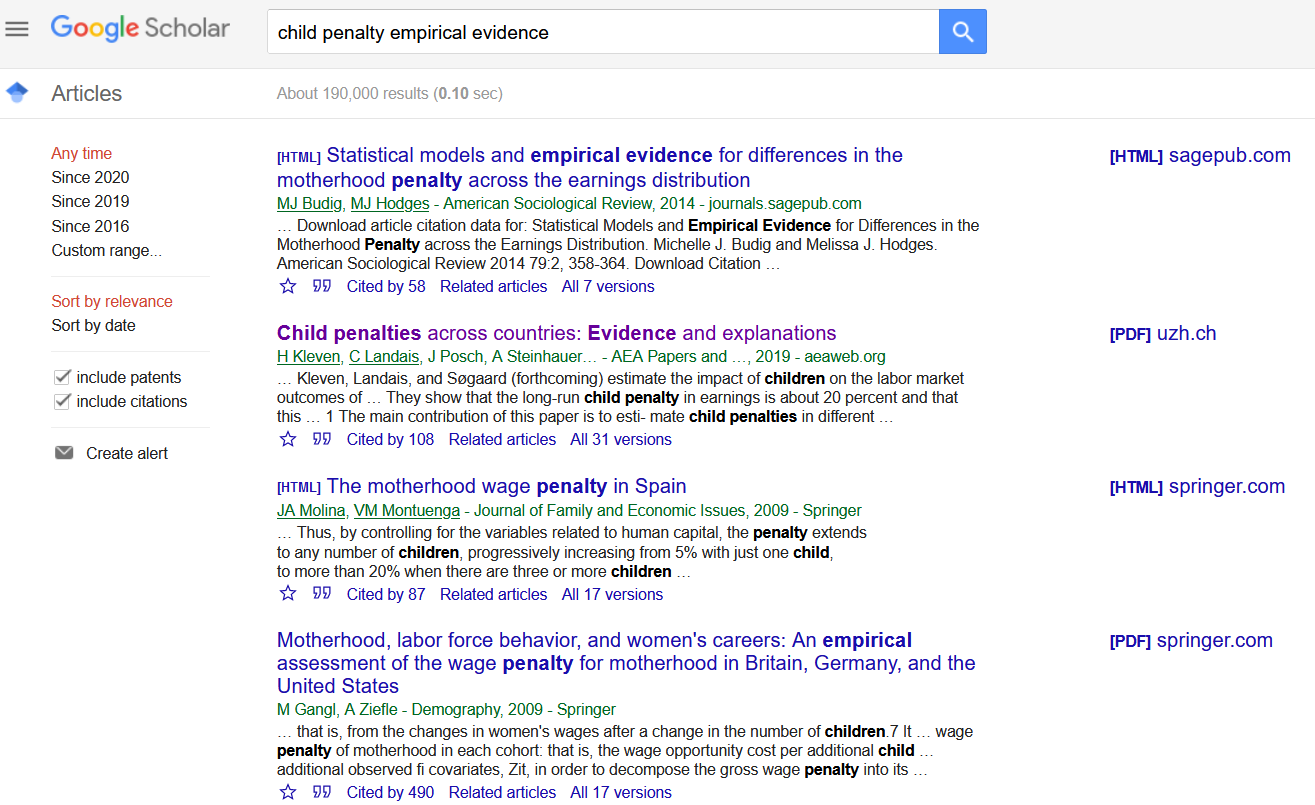
A few things to know
- Results in Google Scholar are not ordered willy-nilly
If you find yourself on page 9, chances are that the results are
less relevant but also less influential
Just keep in mind that there might be a reason that other scholars don't cite a given article...
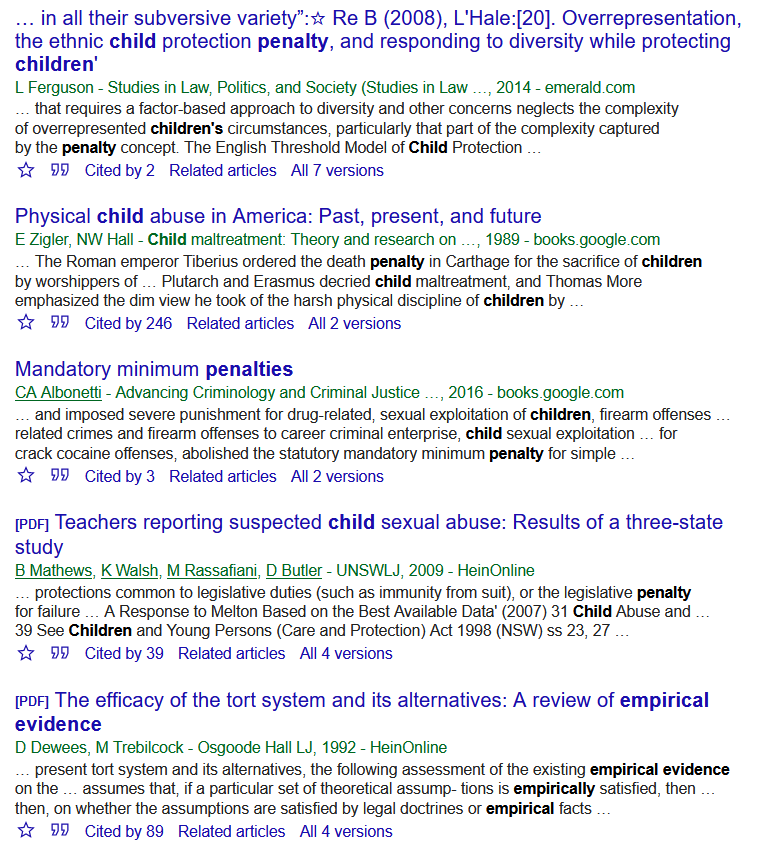
A few things to know
- Results in Google Scholar are not ordered willy-nilly
- When you find a useful/interesting article in Google Scholar, use the links below it!
A few things to know
- When you find a useful/interesting article in Google Scholar, use the links below it!

A few things to know
- When you find a useful/interesting article in Google Scholar, use the links below it!
- the quotation marks on the left pull up a complete citation for the article, in several different formats
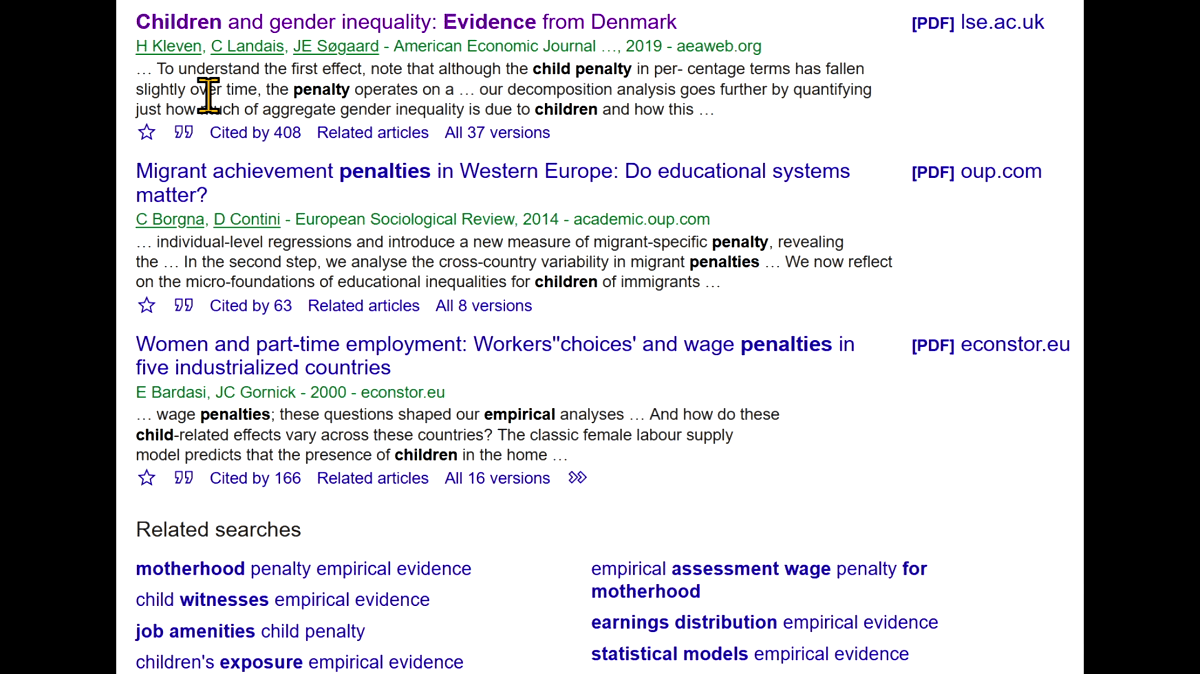
A few things to know
- When you find a useful/interesting article in Google Scholar, use the links below it!
- the quotation marks on the left pull up a complete citation for the article, in several different formats
- clicking Related articles reveals papers that google’s algorithm has picked as similar to the original article—especially useful at the beginning of a lit review

A few things to know
- "Cited by" shows you all articles that cite the original article
- ...but more importantly, when you click on "Cited by," you get a searchable list of articles that cite the original article!

A few things to know
- if you select "Search within citing articles" the search will return results within the set of articles that cite the first article
This is very powerful
For example, you may know about one or two seminal articles in the field but you are not familiar with the latest evidence that builds on those articles
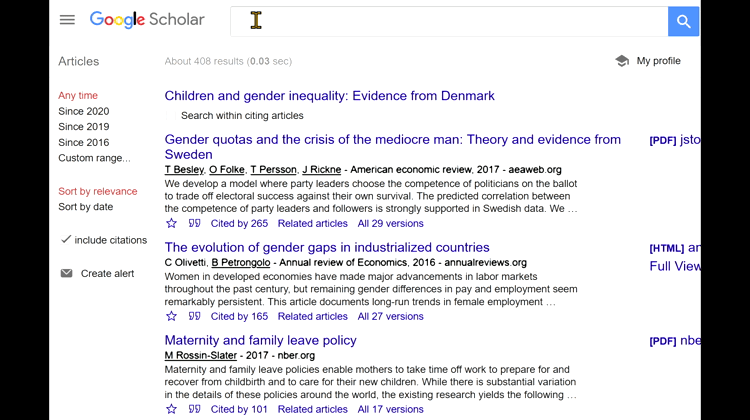
A few things to know
- Results in Google Scholar are not ordered willy-nilly
- When you find a useful/interesting article in Google Scholar, use the links below it!
- Use the advanced search function!
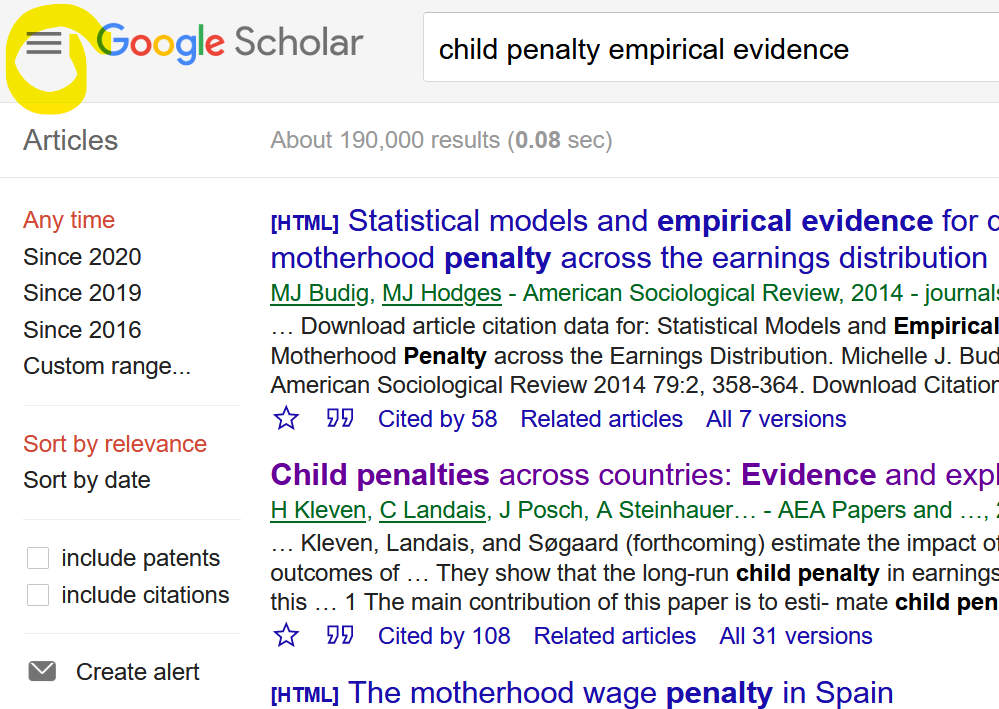
A few things to know
- Use the advanced search function!

This allows you to specify that the keyword you are searching for should appear in the author name, or in a specific date range
Example: your keywords are also common names
You may want articles that include the words "wolf" and "hunt" in the text or title, but you aren't interested in articles written by a Dr. Hunt, or a Professor Wolf
A few things to know
- Use the advanced search function!

This allows you to specify that the keyword you are searching for should appear in the author name, or in a specific date range
Example: your keywords are also common names
Or maybe you want to find citing articles that are not by the same authors as the original article
2) Google data
Google public data
Google’s public data search is an amazing resource for finding publicly available data sets.
It includes some visualization options; often a great place to start looking for interesting facts
You can select an indicator, the countries that you want to look at, the range of years, etc.
Click play on the right to see minimum wages across Europe
(in Euros/month)
Google datasearch
Google also has a Dataset Search, which has a wider range of data sets, but they are not all in the public domain. It can still be tremendously useful for learning about data sources.
Literature review: where to find sources?
By Emilia Tjernström
Literature review: where to find sources?
An important part of a literature review is finding high-quality papers to read and cite... but how to go about it?
- 1,473



